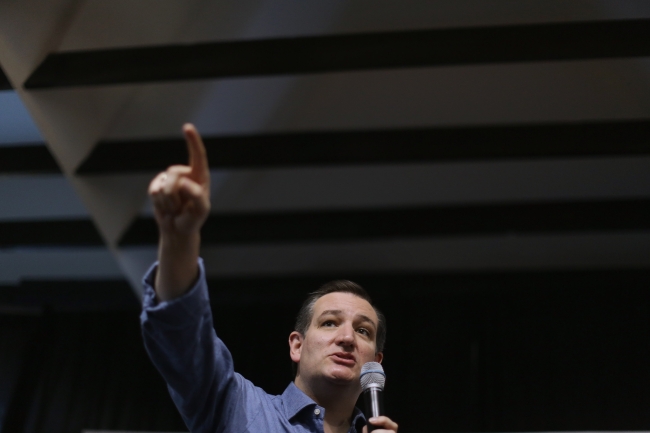You have /5 articles left.
Sign up for a free account or log in.

Getty Images
Senator Ted Cruz’s victory in the Iowa caucuses this week elevates the candidacy of the presidential contender who is perhaps most at odds with colleges and universities on many policy issues.
The Texas Republican has pushed for the kind of austerity in the federal budget that typically does not bode well for scientific research and federal student aid programs. And he played a key role in the 2013 government shutdown, which interrupted some federally supported academic research.
In particular, though, he’s clashed with the National Aeronautics and Space Administration over its support for earth science research, including studies relating to climate change. As chair of the Senate Subcommittee on Space, Science and Competitiveness, Cruz last year said that NASA should be focused more squarely on space exploration rather than earth science, which he dismissed as not a “hard science.”
The remarks by Cruz, who disputes the scientific consensus on climate change, were met with alarm by scientific groups like the American Geophysical Union.
Cruz’s criticisms of NASA are part of what many in the scientific community see as a broader assault on federal research agencies by congressional Republicans over the past several years.
Student Loans and Grants
Unlike his Democratic counterparts -- as well as some of his fellow Republican challengers -- Cruz has not formally outlined any specific policy proposals relating to higher education.
However, Cruz has repeatedly promised he would get rid of the U.S. Department of Education as part of an effort to drastically shrink the size of the federal government. He said during his 2012 run for Senate that he would not completely eliminate federal student aid but would instead have individual states distribute that money.
Cruz has addressed on several occasions student loan debt, including his own experience borrowing money to pay for college and law school. Launching his campaign at Liberty University last year, he described owing “over $100,000 in school loans,” which he said he “paid off a few years ago.”
He has said, in general terms, that improving the economy would help students saddled with debt from college.
“Economic growth is critical to young people, because if we want this generation to be able to pay off their loans and develop the skills to live the American dream, we’ve got to return to an environment where small businesses are growing and flourishing, and creating jobs and opportunities,” he told The Skimm.
Immigration and Affirmative Action
Like many Republicans, Cruz is campaigning on taking a tougher line on federal immigration policy. He’s said he wants to reverse President Obama’s executive orders on immigration, including the reprieve from deportation offered to young immigrants, many of them students, who were brought to the United States as children by parents who entered the country illegally.
In addition, Cruz, who graduated from Princeton University and Harvard Law School, has been sharply critical of the consideration of race in college admissions. “I can tell you one of the downsides of affirmative action, being a Hispanic man, is over and over again you have people, often supercilious liberals, who would suggest you’re only here because of affirmative action,” he told BuzzFeed last year.
He added that colleges should focus on academic merit and not race. Some leading universities today are enforcing “negative quotas” against Asian applicants much the way they once did for Jewish applicants. “We see it now with colleges in California … negative quotas against Asian students because academically they’re excelling,” he said.




